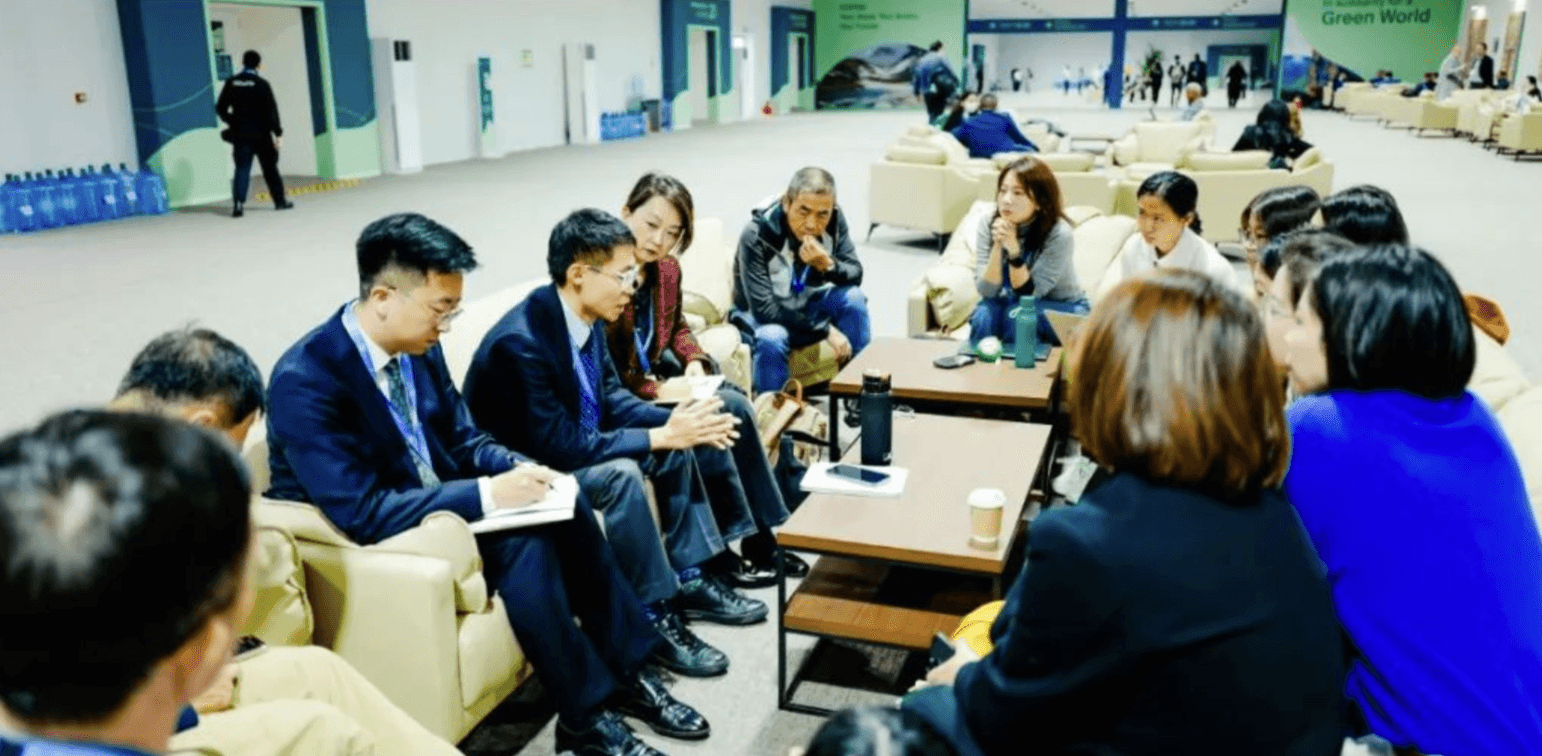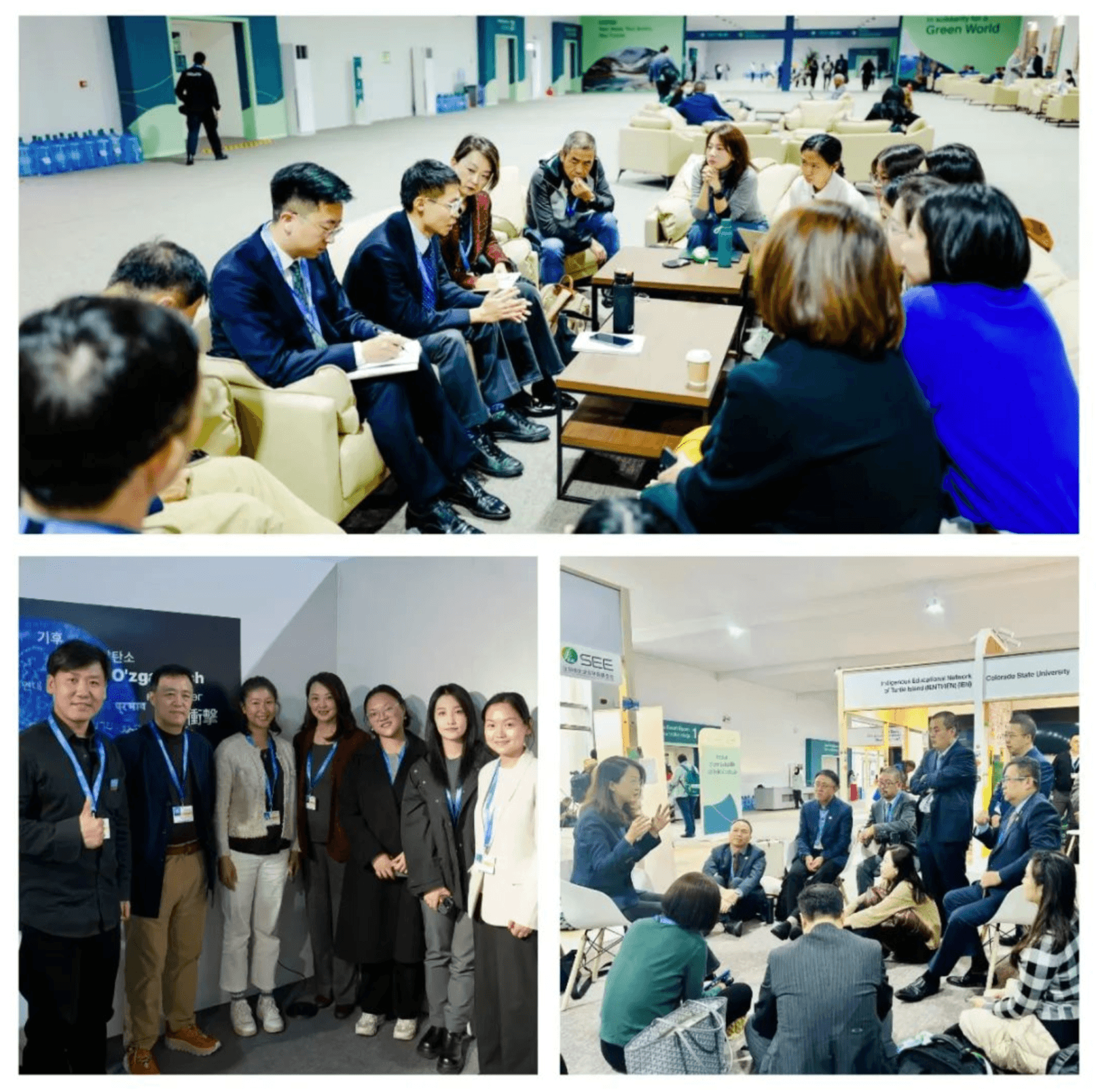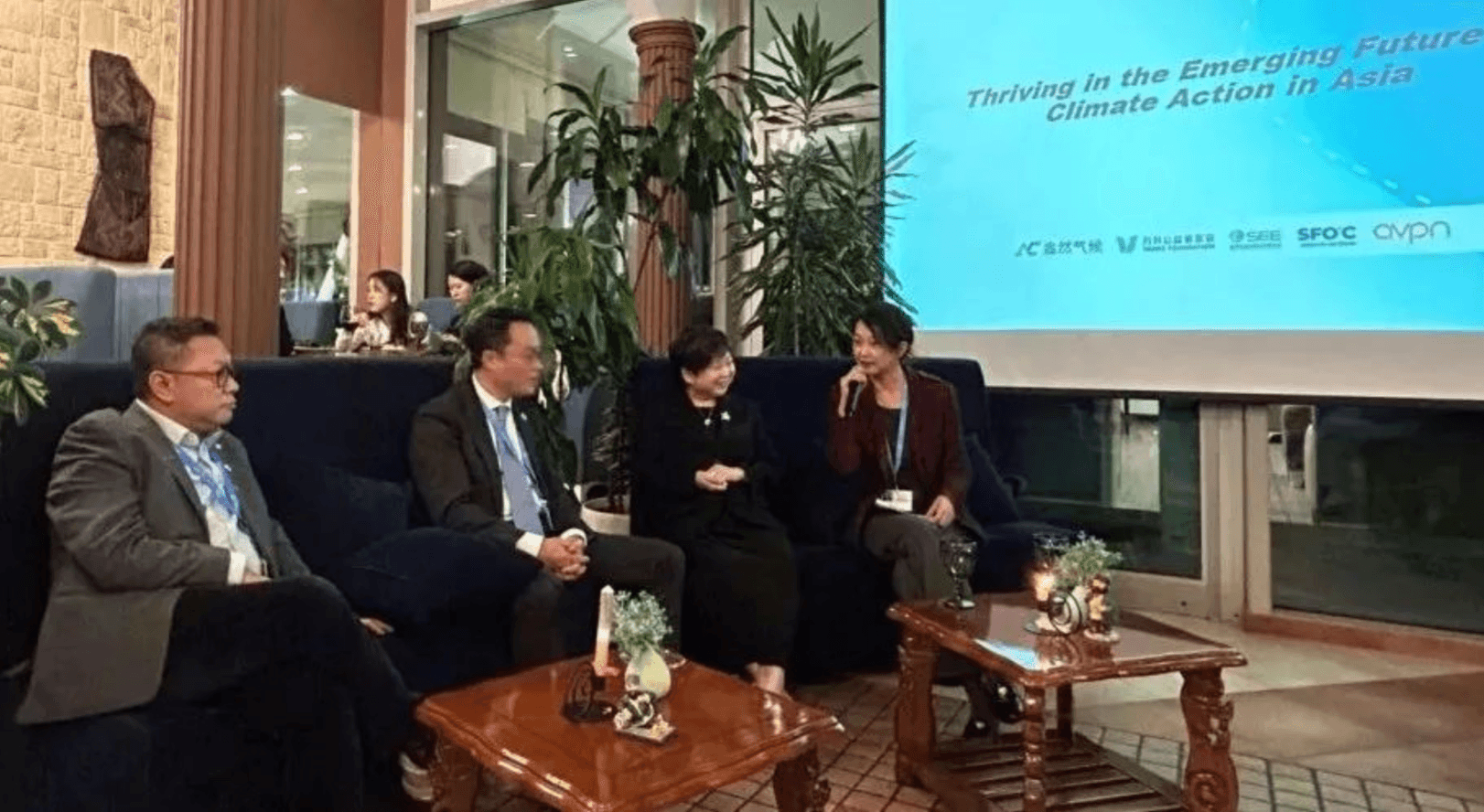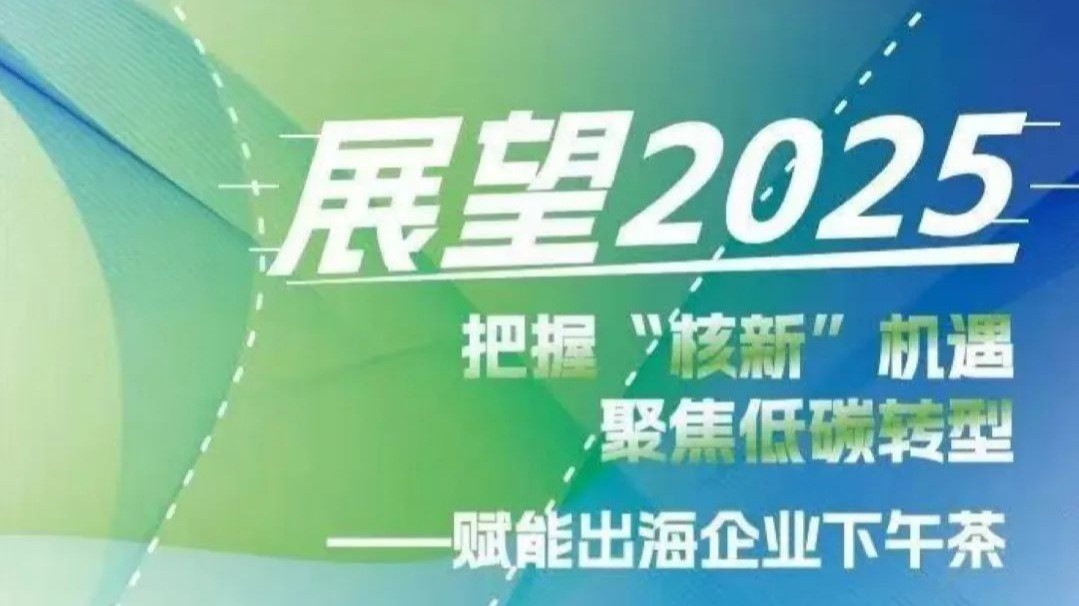New Changemakers
COP29 Engagement and Key Insights
COP29 Engagement and Key Insights
COP29 Engagement and Key Insights
Mar 5, 2025
Abundant Climate
Mar 5, 2025
Abundant Climate
Mar 5, 2025
Abundant Climate



From November 11 to 24, the 29th Conference of the Parties (COP29) to the United Nations Framework Convention on Climate Change (UNFCCC) took place in Baku, Azerbaijan. In late October, in collaboration with the Vanke Foundation, Abundant Climate Action Institute launched the Abundant Climate Voyage project. The initiative began with an online pre-departure salon, followed by on-the-ground engagement in Baku.
During the pre-departure salon, we explored the following question:
As Chinese enterprises and entrepreneurs expand globally and become multinational corporations, how can they better participate in international and host-country climate governance? What insights and support can they gain from the UN Climate Conference?
As COP29 commenced, another question emerged:
With members who have attended over ten UN Climate Conferences, Abundant Climate has developed its own observations and reflections on climate politics and the diverse roles of stakeholders inside and outside the negotiations. As a new team positioned at the intersection of cross-sector innovation and ecosystem contribution, what role can we play in this process?
With these questions in mind, we embarked on our COP29 journey. Below is a summary of our key activities and initial insights gathered during the conference.
1. Online Activities: Bridging Knowledge Barriers with COP29 Daily Briefs
With growing interest in climate negotiations, many participants struggle with complex terminology and policy discussions. To address this, Abundant Climate partnered with Haipan Nature to provide daily Chinese-language briefings based on two major English-language sources:
Earth Negotiations Bulletin (ENB), an objective and comprehensive report by IISD.
ECO, a more opinionated daily commentary published by the Climate Action Network (CAN).
Additionally, notable side events and emerging topics were summarized using AI-assisted tools like Kimi, with final reviews by two experienced NGO observers. From November 11 onwards, a rapid and comprehensive Chinese-language summary was produced daily, shared in key COP29 chat groups.
The response was overwhelmingly positive, confirming the urgent need for accessible climate negotiation insights. The initiative demonstrated that leveraging existing tools and AI can significantly lower knowledge barriers. A key question remains: how can we further deepen understanding beyond what AI can currently facilitate?
2. On-Site Activities in Baku
(1) "Abundant Coffee Corners": Face-to-Face ‘Climate Literacy’
COP negotiations are often highly technical, leading to information overload for new participants. To help demystify discussions, Abundant Climate hosted three informal “Abundant Coffee Corners” (November 13, 16, and 20) inside the Blue Zone, featuring experts such as:
Yao Zhe (Global Policy Advisor, Greenpeace East Asia)
Li Shuo (Director, China Climate Hub, Asia Society Policy Institute)
Li Yan (Executive Director, Abundant Climate Action Institute)
Zhang Yige (Senior Research Fellow, Beijing Institute of Green Finance & Sustainable Development)
The discussion ranged from expectations for the policy outcomes of this climate conference to the current state and trajectory of climate politics, the evolution of international climate cooperation from Copenhagen to Paris, its synergy with industry and society, and the connection between climate policy trends and corporate governance, among other topics.
In an informal setting, experts shared insights on policy expectations, climate politics, and the evolution of international climate cooperation. Attendees from businesses, NGOs, and media provided enthusiastic feedback, noting that expert guidance helped them navigate complex discussions. The initiative reinforced the interconnectedness of climate negotiations, green industries, public awareness, and social participation.
Additionally, COP29 increasingly felt like a global climate action platform rather than just a negotiation space. This shift suggests growing confidence in the global low-carbon transition.

(2) ACS Pavilion Side Event: Cross-Sector Climate Collaboration
On November 15, Abundant Climate co-hosted a side event at the Asia Climate Solutions Pavilion with partners such as Solutions For Our Climate (SFOC) and the Sequoia Climate Foundation. The panel, titled "Shaping the Future of Asian Climate Action," featured:
Zhang Ruiying (Executive Director, China Environmental Grantmakers Alliance)
Chen Zidan (Chief Sustainability Officer, Shanghai Morning Light Stationery Group)
Isabelle de Lovinfosse (Director, Singapore & Regional Collaboration, Tara Climate Foundation)
The discussion centered on shared challenges and opportunities in climate action, highlighting the need for deeper collaboration across regions, industries, and disciplines. Key questions explored included:
What unique challenges exist in your climate action work, and what has been effective?
What partnerships, opportunities, or resources can help overcome these challenges?
How can we foster more cross-regional, cross-industry, and cross-sector climate collaboration?
This dialogue revealed a strong desire for more integrated climate ecosystems and a deep focus on local communities.
(3) Future-Oriented Dinner Dialogue: Inspiring Visions for Asian Climate Impact
On November 18, Abundant Climate hosted a dinner event titled "The Future of Asian Climate Influence," with support from Vanke Foundation, SEE Conservation Ecological Association, SFOC, and AVPN. Attendees included over 30 business leaders, foundation representatives, and nonprofit practitioners working on systemic climate solutions.
The dinner discussion encouraged participants to think about climate action in the long term:
What will be discussed at COP39 in ten years?
By then, what positive changes will have taken place?
Looking back at today, if with ample funding, how would you allocate philanthropic investments?
Speakers such as Lu Sicheng (Program Director, Sequoia Climate Foundation), Zhu Xiaoyu (Board Member, SEE), and Wang Lilan (Climate & Livability Program Lead, Temasek Foundation) shared insights on climate philanthropy.
From the construction of coal-fired power plants in Asia to the maturation and expansion of the climate philanthropy and investment ecosystem, as well as the profound importance of deep, systematic climate education for future generations, we have glimpsed the multidimensional and far-reaching transformation envisioned by a new generation of climate philanthropists.

Key Takeaways & Future Directions
During these two weeks, the Abundant Climate team actively observed, learned, and engaged in discussions, particularly on:
The role of innovative financing mechanisms (e.g., blended finance) in supporting a just transition.
The knowledge needs of Chinese business leaders at COP and their potential collaboration with NGOs.
Our experiences at COP29 reaffirm the importance of bridging knowledge gaps, fostering cross-sector dialogues, and envisioning long-term climate action strategies. We extend our gratitude to all partners and colleagues for their support and inspiration.
Final Reflection: A Question for the Future
What advice would your future self, ten years from now, give to you in 2024?
From November 11 to 24, the 29th Conference of the Parties (COP29) to the United Nations Framework Convention on Climate Change (UNFCCC) took place in Baku, Azerbaijan. In late October, in collaboration with the Vanke Foundation, Abundant Climate Action Institute launched the Abundant Climate Voyage project. The initiative began with an online pre-departure salon, followed by on-the-ground engagement in Baku.
During the pre-departure salon, we explored the following question:
As Chinese enterprises and entrepreneurs expand globally and become multinational corporations, how can they better participate in international and host-country climate governance? What insights and support can they gain from the UN Climate Conference?
As COP29 commenced, another question emerged:
With members who have attended over ten UN Climate Conferences, Abundant Climate has developed its own observations and reflections on climate politics and the diverse roles of stakeholders inside and outside the negotiations. As a new team positioned at the intersection of cross-sector innovation and ecosystem contribution, what role can we play in this process?
With these questions in mind, we embarked on our COP29 journey. Below is a summary of our key activities and initial insights gathered during the conference.
1. Online Activities: Bridging Knowledge Barriers with COP29 Daily Briefs
With growing interest in climate negotiations, many participants struggle with complex terminology and policy discussions. To address this, Abundant Climate partnered with Haipan Nature to provide daily Chinese-language briefings based on two major English-language sources:
Earth Negotiations Bulletin (ENB), an objective and comprehensive report by IISD.
ECO, a more opinionated daily commentary published by the Climate Action Network (CAN).
Additionally, notable side events and emerging topics were summarized using AI-assisted tools like Kimi, with final reviews by two experienced NGO observers. From November 11 onwards, a rapid and comprehensive Chinese-language summary was produced daily, shared in key COP29 chat groups.
The response was overwhelmingly positive, confirming the urgent need for accessible climate negotiation insights. The initiative demonstrated that leveraging existing tools and AI can significantly lower knowledge barriers. A key question remains: how can we further deepen understanding beyond what AI can currently facilitate?
2. On-Site Activities in Baku
(1) "Abundant Coffee Corners": Face-to-Face ‘Climate Literacy’
COP negotiations are often highly technical, leading to information overload for new participants. To help demystify discussions, Abundant Climate hosted three informal “Abundant Coffee Corners” (November 13, 16, and 20) inside the Blue Zone, featuring experts such as:
Yao Zhe (Global Policy Advisor, Greenpeace East Asia)
Li Shuo (Director, China Climate Hub, Asia Society Policy Institute)
Li Yan (Executive Director, Abundant Climate Action Institute)
Zhang Yige (Senior Research Fellow, Beijing Institute of Green Finance & Sustainable Development)
The discussion ranged from expectations for the policy outcomes of this climate conference to the current state and trajectory of climate politics, the evolution of international climate cooperation from Copenhagen to Paris, its synergy with industry and society, and the connection between climate policy trends and corporate governance, among other topics.
In an informal setting, experts shared insights on policy expectations, climate politics, and the evolution of international climate cooperation. Attendees from businesses, NGOs, and media provided enthusiastic feedback, noting that expert guidance helped them navigate complex discussions. The initiative reinforced the interconnectedness of climate negotiations, green industries, public awareness, and social participation.
Additionally, COP29 increasingly felt like a global climate action platform rather than just a negotiation space. This shift suggests growing confidence in the global low-carbon transition.

(2) ACS Pavilion Side Event: Cross-Sector Climate Collaboration
On November 15, Abundant Climate co-hosted a side event at the Asia Climate Solutions Pavilion with partners such as Solutions For Our Climate (SFOC) and the Sequoia Climate Foundation. The panel, titled "Shaping the Future of Asian Climate Action," featured:
Zhang Ruiying (Executive Director, China Environmental Grantmakers Alliance)
Chen Zidan (Chief Sustainability Officer, Shanghai Morning Light Stationery Group)
Isabelle de Lovinfosse (Director, Singapore & Regional Collaboration, Tara Climate Foundation)
The discussion centered on shared challenges and opportunities in climate action, highlighting the need for deeper collaboration across regions, industries, and disciplines. Key questions explored included:
What unique challenges exist in your climate action work, and what has been effective?
What partnerships, opportunities, or resources can help overcome these challenges?
How can we foster more cross-regional, cross-industry, and cross-sector climate collaboration?
This dialogue revealed a strong desire for more integrated climate ecosystems and a deep focus on local communities.
(3) Future-Oriented Dinner Dialogue: Inspiring Visions for Asian Climate Impact
On November 18, Abundant Climate hosted a dinner event titled "The Future of Asian Climate Influence," with support from Vanke Foundation, SEE Conservation Ecological Association, SFOC, and AVPN. Attendees included over 30 business leaders, foundation representatives, and nonprofit practitioners working on systemic climate solutions.
The dinner discussion encouraged participants to think about climate action in the long term:
What will be discussed at COP39 in ten years?
By then, what positive changes will have taken place?
Looking back at today, if with ample funding, how would you allocate philanthropic investments?
Speakers such as Lu Sicheng (Program Director, Sequoia Climate Foundation), Zhu Xiaoyu (Board Member, SEE), and Wang Lilan (Climate & Livability Program Lead, Temasek Foundation) shared insights on climate philanthropy.
From the construction of coal-fired power plants in Asia to the maturation and expansion of the climate philanthropy and investment ecosystem, as well as the profound importance of deep, systematic climate education for future generations, we have glimpsed the multidimensional and far-reaching transformation envisioned by a new generation of climate philanthropists.

Key Takeaways & Future Directions
During these two weeks, the Abundant Climate team actively observed, learned, and engaged in discussions, particularly on:
The role of innovative financing mechanisms (e.g., blended finance) in supporting a just transition.
The knowledge needs of Chinese business leaders at COP and their potential collaboration with NGOs.
Our experiences at COP29 reaffirm the importance of bridging knowledge gaps, fostering cross-sector dialogues, and envisioning long-term climate action strategies. We extend our gratitude to all partners and colleagues for their support and inspiration.
Final Reflection: A Question for the Future
What advice would your future self, ten years from now, give to you in 2024?
From November 11 to 24, the 29th Conference of the Parties (COP29) to the United Nations Framework Convention on Climate Change (UNFCCC) took place in Baku, Azerbaijan. In late October, in collaboration with the Vanke Foundation, Abundant Climate Action Institute launched the Abundant Climate Voyage project. The initiative began with an online pre-departure salon, followed by on-the-ground engagement in Baku.
During the pre-departure salon, we explored the following question:
As Chinese enterprises and entrepreneurs expand globally and become multinational corporations, how can they better participate in international and host-country climate governance? What insights and support can they gain from the UN Climate Conference?
As COP29 commenced, another question emerged:
With members who have attended over ten UN Climate Conferences, Abundant Climate has developed its own observations and reflections on climate politics and the diverse roles of stakeholders inside and outside the negotiations. As a new team positioned at the intersection of cross-sector innovation and ecosystem contribution, what role can we play in this process?
With these questions in mind, we embarked on our COP29 journey. Below is a summary of our key activities and initial insights gathered during the conference.
1. Online Activities: Bridging Knowledge Barriers with COP29 Daily Briefs
With growing interest in climate negotiations, many participants struggle with complex terminology and policy discussions. To address this, Abundant Climate partnered with Haipan Nature to provide daily Chinese-language briefings based on two major English-language sources:
Earth Negotiations Bulletin (ENB), an objective and comprehensive report by IISD.
ECO, a more opinionated daily commentary published by the Climate Action Network (CAN).
Additionally, notable side events and emerging topics were summarized using AI-assisted tools like Kimi, with final reviews by two experienced NGO observers. From November 11 onwards, a rapid and comprehensive Chinese-language summary was produced daily, shared in key COP29 chat groups.
The response was overwhelmingly positive, confirming the urgent need for accessible climate negotiation insights. The initiative demonstrated that leveraging existing tools and AI can significantly lower knowledge barriers. A key question remains: how can we further deepen understanding beyond what AI can currently facilitate?
2. On-Site Activities in Baku
(1) "Abundant Coffee Corners": Face-to-Face ‘Climate Literacy’
COP negotiations are often highly technical, leading to information overload for new participants. To help demystify discussions, Abundant Climate hosted three informal “Abundant Coffee Corners” (November 13, 16, and 20) inside the Blue Zone, featuring experts such as:
Yao Zhe (Global Policy Advisor, Greenpeace East Asia)
Li Shuo (Director, China Climate Hub, Asia Society Policy Institute)
Li Yan (Executive Director, Abundant Climate Action Institute)
Zhang Yige (Senior Research Fellow, Beijing Institute of Green Finance & Sustainable Development)
The discussion ranged from expectations for the policy outcomes of this climate conference to the current state and trajectory of climate politics, the evolution of international climate cooperation from Copenhagen to Paris, its synergy with industry and society, and the connection between climate policy trends and corporate governance, among other topics.
In an informal setting, experts shared insights on policy expectations, climate politics, and the evolution of international climate cooperation. Attendees from businesses, NGOs, and media provided enthusiastic feedback, noting that expert guidance helped them navigate complex discussions. The initiative reinforced the interconnectedness of climate negotiations, green industries, public awareness, and social participation.
Additionally, COP29 increasingly felt like a global climate action platform rather than just a negotiation space. This shift suggests growing confidence in the global low-carbon transition.

(2) ACS Pavilion Side Event: Cross-Sector Climate Collaboration
On November 15, Abundant Climate co-hosted a side event at the Asia Climate Solutions Pavilion with partners such as Solutions For Our Climate (SFOC) and the Sequoia Climate Foundation. The panel, titled "Shaping the Future of Asian Climate Action," featured:
Zhang Ruiying (Executive Director, China Environmental Grantmakers Alliance)
Chen Zidan (Chief Sustainability Officer, Shanghai Morning Light Stationery Group)
Isabelle de Lovinfosse (Director, Singapore & Regional Collaboration, Tara Climate Foundation)
The discussion centered on shared challenges and opportunities in climate action, highlighting the need for deeper collaboration across regions, industries, and disciplines. Key questions explored included:
What unique challenges exist in your climate action work, and what has been effective?
What partnerships, opportunities, or resources can help overcome these challenges?
How can we foster more cross-regional, cross-industry, and cross-sector climate collaboration?
This dialogue revealed a strong desire for more integrated climate ecosystems and a deep focus on local communities.
(3) Future-Oriented Dinner Dialogue: Inspiring Visions for Asian Climate Impact
On November 18, Abundant Climate hosted a dinner event titled "The Future of Asian Climate Influence," with support from Vanke Foundation, SEE Conservation Ecological Association, SFOC, and AVPN. Attendees included over 30 business leaders, foundation representatives, and nonprofit practitioners working on systemic climate solutions.
The dinner discussion encouraged participants to think about climate action in the long term:
What will be discussed at COP39 in ten years?
By then, what positive changes will have taken place?
Looking back at today, if with ample funding, how would you allocate philanthropic investments?
Speakers such as Lu Sicheng (Program Director, Sequoia Climate Foundation), Zhu Xiaoyu (Board Member, SEE), and Wang Lilan (Climate & Livability Program Lead, Temasek Foundation) shared insights on climate philanthropy.
From the construction of coal-fired power plants in Asia to the maturation and expansion of the climate philanthropy and investment ecosystem, as well as the profound importance of deep, systematic climate education for future generations, we have glimpsed the multidimensional and far-reaching transformation envisioned by a new generation of climate philanthropists.

Key Takeaways & Future Directions
During these two weeks, the Abundant Climate team actively observed, learned, and engaged in discussions, particularly on:
The role of innovative financing mechanisms (e.g., blended finance) in supporting a just transition.
The knowledge needs of Chinese business leaders at COP and their potential collaboration with NGOs.
Our experiences at COP29 reaffirm the importance of bridging knowledge gaps, fostering cross-sector dialogues, and envisioning long-term climate action strategies. We extend our gratitude to all partners and colleagues for their support and inspiration.
Final Reflection: A Question for the Future
What advice would your future self, ten years from now, give to you in 2024?
Looking for new ideas & resonance?
We work with climate changemakers of all kinds:
Entrepreneurs, investors, philanthropists, non-profit activists, futurists, writers, to bring in innovation and resources - Raindrops💧, sunshine☀️ and ways of growth🌱 to the forest.
Get in touch
Looking for new ideas & resonance?
We work with climate changemakers of all kinds:
Entrepreneurs, investors, philanthropists, non-profit activists, futurists, writers, to bring in innovation and resources - Raindrops💧, sunshine☀️ and ways of growth🌱 to the forest.
Get in touch
Looking for new ideas & resonance?
We work with climate changemakers of all kinds:
Entrepreneurs, investors, philanthropists, non-profit activists, futurists, writers, to bring in innovation and resources - Raindrops💧, sunshine☀️ and ways of growth🌱 to the forest.

